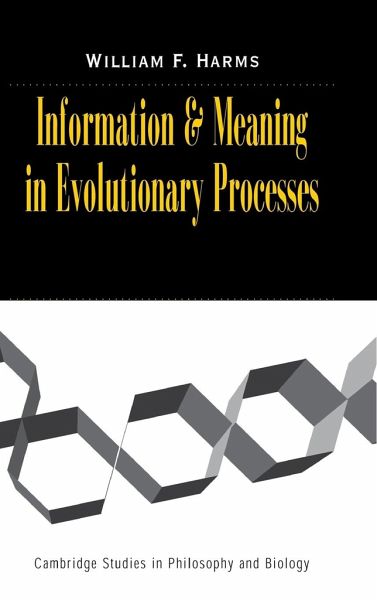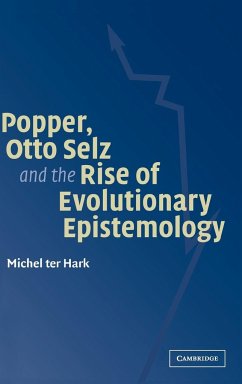
Information and Meaning in Evolutionary Processes

PAYBACK Punkte
52 °P sammeln!
This book is intended to help transform epistemology - the traditional study of knowledge - into a rigorous discipline by removing conceptual roadblocks and developing formal tools required for a fully naturalized epistemology. The evolutionary approach which Harms favours begins with the common observation that if our senses and reasoning were not reliable, then natural selection would have eliminated them long ago. The challenge for some time has been how to transform these informal musings about evolutionary epistemology into a rigorous theoretical discipline capable of complementing curren...
This book is intended to help transform epistemology - the traditional study of knowledge - into a rigorous discipline by removing conceptual roadblocks and developing formal tools required for a fully naturalized epistemology. The evolutionary approach which Harms favours begins with the common observation that if our senses and reasoning were not reliable, then natural selection would have eliminated them long ago. The challenge for some time has been how to transform these informal musings about evolutionary epistemology into a rigorous theoretical discipline capable of complementing current scientific studies of the evolution of cognition with a philosophically defensible account of meaning and justification.














